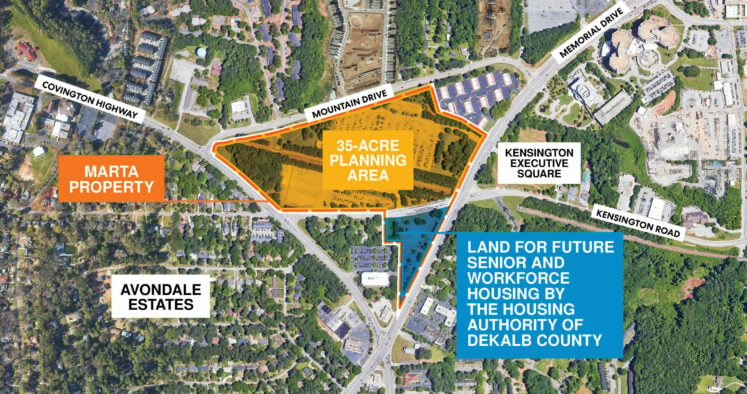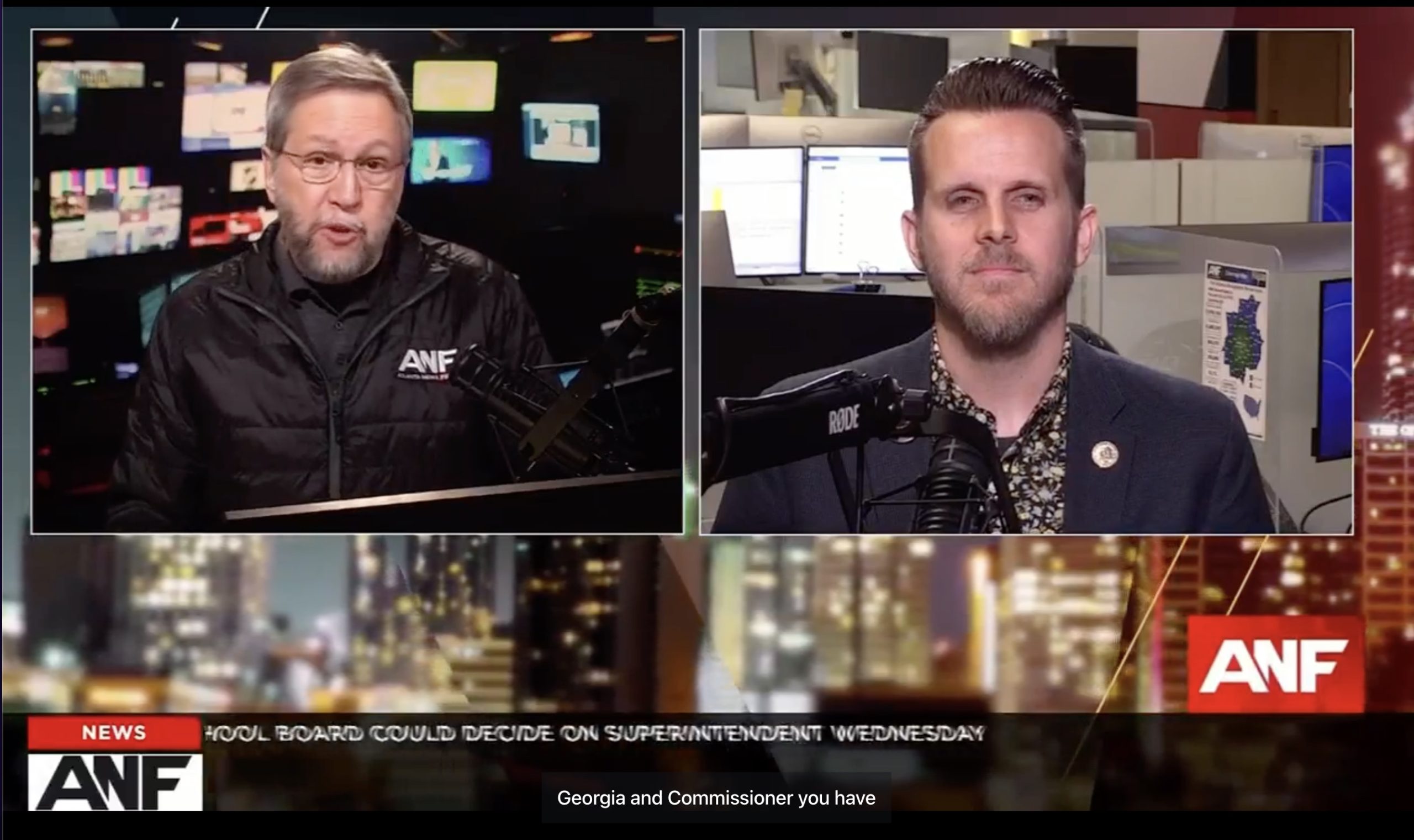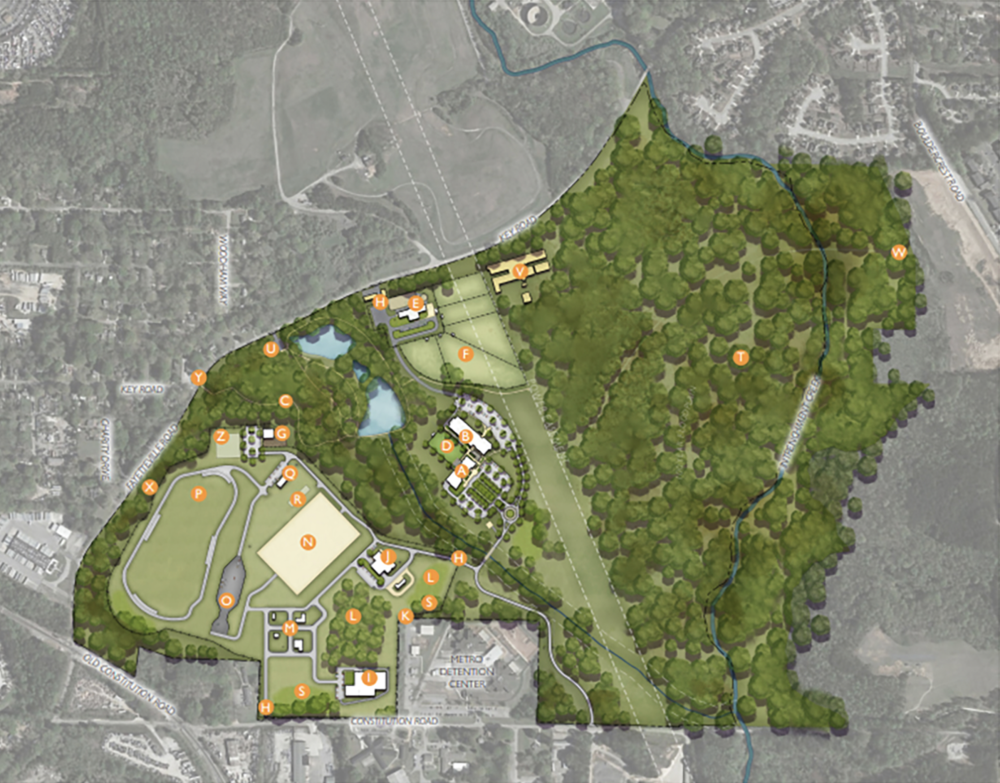Originally posted in Decaturish

DeKalb County, GA — The Metropolitan Atlanta Rapid Transit Authority is moving forward with a project to redevelop the Kensington station. The DeKalb County Board of Commissioners approved MARTA’s rezoning request for the property at the end of April.
The station is located at 3350 Kensington Road at the crossroads of Covington Highway and Memorial Drive. The study area includes 35 acres that currently house 1,912 surface parking spaces.
The property was rezoned from R-75 (residential medium lot-75), MR-2 (Medium Density Residential-2), and C-1 (Local Commercial) zoning districts to MU-5 (Mixed Use Very High Density) zoning district to allow a future mix of land uses to implement the Livable Centers Initiative plan and transit-oriented development goals at 3350 Kensington Road.
MARTA is working on creating a master plan for the Kensington MARTA station, which is located just outside of Avondale Estates. The master plan will direct the rezoning of the 35 acres surrounding the station and enable redevelopment from the private development community, according to the project website.
“We are grateful for the support of the DeKalb County Commission and this vital rezoning designation,” said MARTA General Manager and CEO Collie Greenwood in a press release. “We are now ready to solicit developers to work with MARTA and DeKalb to turn the undeveloped and underused property around the rail station into a community hub with affordable housing and neighborhood amenities.”
In June 2022, MARTA and the county kicked off the master planning process. The Kensington TOD Master Plan includes affordable senior and workforce housing, and a new headquarters for the Housing Authority of DeKalb County (HADC).
“We have worked alongside MARTA in developing this TOD master plan and it is exciting to help achieve this milestone,” said DeKalb County Commissioner Ted Terry. “This type of development with convenient access to transit builds strong, connected communities.”
In the press release, Commissioner Steve Bradshaw said he has long supported MARTA and the important role the agency plays in community development.
“The Kensington TOD will provide affordable housing and other amenities while reflecting the diversity and spirit of our county and serve as a catalyst for the planned revitalization of Memorial Drive,” he said.
Representatives from the consulting firm working with MARTA presented the rezoning plans to the DeKalb Board of Commissioners on Feb. 28.
“MARTA has had a series of goals that ultimately led to this rezoning,” said Sarah McColley, urban designer at Perkins and Will. “They wanted to encourage a mixed-use walkable environment with housing, retail, office, and a new approach to parking. They want to offer a variety of housing choices at different price points, increase ridership on the MARTA system and generate revenue for MARTA, and then improve multimodal access and safety to the station and on the streets around the station.”
The county’s Livable Centers Initiative plan envisions the Kensington MARTA station as a regional center.
“In a more local view, it also can be a centralized destination for the surrounding community and the residents around it while we’re connecting to broader networks of trails and greenspaces,” McColley said.
MARTA has hosted various public engagement opportunities throughout the master planning process.
“The main themes that we heard is that making walking and biking easier and around the station is really important, that we need to add public greenspaces with recreation and space for events, offer a variety of housing types and make them affordable, adding quality retail and restaurants, including things for daily essentials, and then building a walkable mixed-use community destination,” she said.
To make the station a neighborhood gathering place, the plan and rezoning application set design parameters that address the themes.
“The first one is to create a connected street network with walkable blocks and better crossings over the tracks, redesigning the current stormwater pond into a usable public space, improving pedestrian and bike access to the station with additional access points, trails, and sidewalks, make it easier to access the bus bay from the street, creating a usable event space or park including a permanent location for Station Soccer and then testing smaller scale development types like small multifamily buildings and mixed buildings,” McColley said.
The plans for the station aim to maximize flexibility for MARTA. Perkins and Will has created three street and land use frameworks that address the design parameters and create developable blocks. In all three options, the south side of the property has a new street connection to Covington Highway, a MARTA parking deck, townhomes, and other mixed-use buildings.
For the first option, the north part of the property is arranged around a more square town green. Station Soccer would overlook the stormwater park in the northwest corner, and a series of multifamily and mixed-use buildings would overlook the town green.
The second option is more organized according to the surrounding street network.
“We have one continuous street on the north side connecting over the MARTA tracks down to Kensington Road, and then this one has a bigger town green in the center,” McColley said. “Again relocate Station Soccer to overlook the stormwater park and then the south side is consistent.”
The third option uses more of the current layout for the parking lots to organize the street network.
“[It] has a center town green that’s a little bit smaller, but because of that, we were able to fit in some smaller apartment buildings or smaller mixed-use buildings,” McColley said. “Station Soccer remains where it currently is located. Those larger mixed-use buildings overlook the green spaces and the stormwater park.”
The plan addresses parking needs, as the property currently has about 2,000 parking spaces. MARTA is looking to reduce the number of parking spaces, but new parking will be needed to accommodate the new development.
“It also expands bus service by reconfiguring the current bus bay and connecting the bus bay to the street network,” McColley said. “That allows the bus bay to be opened up to have four or five more bays, and that’s necessary because MARTA is looking to expand bus service at Kensington.”





